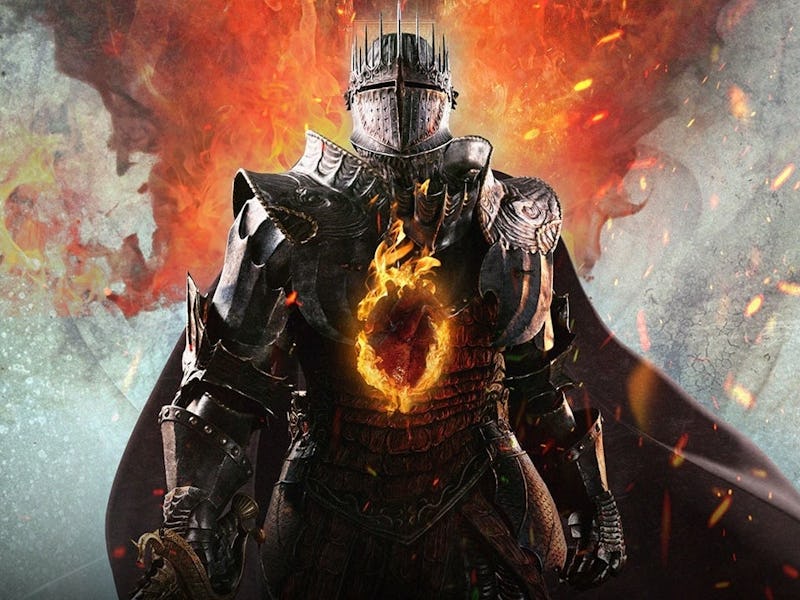Capcom Is Taking a Surprising Stance Against One of Gaming’s Biggest Trends
Going against the grain.

Capcom has been on an undeniable hot streak over the last few years, seemingly making every right decision it possibly could, from wildly successful remakes like Resident Evil 4 to brilliant new experiences like Kunitsu-Gami. This success was a focal point of Capcom’s recent annual shareholder meeting, but amidst that a particularly interesting detail emerged, the company has no plans to stop producing physical games. That’s an interestingly hard stance against the industry at large, which seems to be trending toward eliminating physical sales, but it also highlights Capcom’s approach of going against the grain.
During the meeting, one shareholder asked about Capcom’s outlook on physical games, considering the general decrease in physical sales and heightened need for digital support. Surprisingly the company’s official answer was, “Given that a significant number of end users demand physical games we currently do not expect to eliminate physical products.”
Mega Man also came up during Capcom’s shareholder meeting, with the company saying “Mega Man is one of our highly-valued IPs and we are considering how to create games for it on an ongoing basis.”
What makes that answer so surprising is that in its 2023 financial results, Capcom itself announced that 90 percent of all sales were for digital titles, with that number expected to hit 93 percent in the next year. Even outside of Capcom itself, there have been countless reports and sets of data about sales trending far heavier toward digital, like how 90 percent of all games sold in the UK in 2022 were digital.
That’s exactly what makes this stance from Capcom so interesting, as it feels like it’s counter to what almost every other publisher in the industry is doing. But it perfectly highlights how the publisher seems to be playing by its own rules these days, and it’s clear the company is trying to appeal to multiple groups of consumers at once.
Big games like Baldur’s Gate 3, Alan Wake 2, and Like a Dragon Gaiden have all opted to skip physical releases at a launch. But the big caveat here is that public outcry and demand has made two of those games pursue limited physical releases. Baldur’s Gate 3 received a hefty physical Deluxe Edition that packs in a wealth of goodies, while Alan Wake 2 recently opened pre-orders for physical editions, including a massive Collector’s Edition. But both of these cases only happened after launch, and after thousands of fans asked for them.
Capcom has a long history of pricey Collector’s Editions, which could be part of the reason it doesn’t want to drop physical games.
It seems likely that big games like these changing course has played into Capcom’s decision — it’s a smart move to still maximize sales, but also reduce any backlash that might happen from vocal fans upset at digital-only releases. It feels like an attempt to have the best of both worlds, but it remains to be seen if that reality can actually happen.
More than anything, Capcom’s statements here show the unique position the company has managed to put itself in over the last few years. Most other publishers and companies are scrambling to try and adapt to trends in gaming, while Capcom continues to hone in on what it does best, supporting its key franchises and taking chances on new games. It’s fascinating to see Capcom wildly succeed while others struggle, even raising wages for employees earlier this year.
As digital sales continue to grow there’s more demand rising from consumers that still want physical products, collectors in particular. One of the big problems, however, is that physical games have become a timed commodity, put up for sale for a brief amount of time by companies like Limited Run Games. This plays into the bigger issue of video game preservation, and what happens to all these digital-only games when servers and stores go offline. Are they lost forever? Limited time physical releases are fine collectors items, but they don’t do anything for the important work of preserving games for history or posterity.
There’s little doubt that digital distribution is the easier and more convenient option, it always will be. The shift in that direction won’t stop, but it’s heartening to see major publisher like Capcom still commit to physical games without a second thought. It’s a smart move that makes Capcom look like it values consumers of all kinds, but also ensures the company’s new golden age of releases won’t be lost to time years down the road.